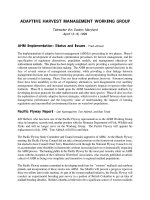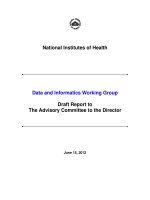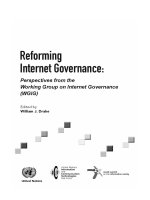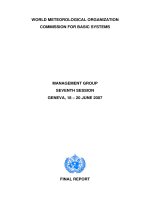group cats group ass pepsi
Bạn đang xem bản rút gọn của tài liệu. Xem và tải ngay bản đầy đủ của tài liệu tại đây (1.19 MB, 15 trang )
<span class="text_page_counter">Trang 1</span><div class="page_container" data-page="1">
<b>GROUP CATS GROUP ASS </b>–
<b>Table of contents </b>
<b>1. Brief introduction of the company </b>
<b>2. Analysis of factors affecting the micro and macro </b>
PepsiCo has a wide product portfolio, including many well-known brands such as Pepsi, Mountain Dew, Tropicana, Gatorade, Quaker Oats, Lay's, Doritos and many more. The company operates globally, with more than 267,000 employees in more than 200 countries.
</div><span class="text_page_counter">Trang 2</span><div class="page_container" data-page="2">Cola. Pepsi Cola was born in 1898 by Caleb Bradham, a pharmacist in New Bern, North Carolina, USA. Pepsi Cola was originally called "Brad's Drink" and was sold at Mr. Bradham's store.
However, when Pepsi Cola was officially put into production and distributed nationwide in 1902, it quickly became a favorite and popular beverage brand. With its distinctive taste, Pepsi Cola has attracted the attention of many customers around the world.
Over the past century, Pepsi Cola has become one of the largest beverage brands in the world, competing with Coca-Cola. Pepsi Cola has been sold in more than 200 countries and remains one of the most loved products in the world.
Today, PepsiCo is present in more than 200 countries and with more than 290,000 employees globally. In addition, PepsiCo is also very interested in environmental protection and implements many programs to encourage recycling, energy saving and sustainable use of natural resources.
Pepsi is one of the world's largest multinational corporations, engaged in the production and distribution of beverages and food globally. To achieve professionalism in its operations, Pepsi has applied many effective management and organizational strategies, including:
Marketing strategy: Pepsi has invested heavily in marketing and advertising strategies to build Pepsi brand, create awareness and increase customer interest in its products. Pepsi used a variety of strategies to reach customers, including media advertising, sponsored events, promotions, and online marketing campaigns.
Product expansion and diversification strategy: Pepsi has launched a variety of products to meet the diverse needs of the market, from traditional soft drinks such as Pepsi and Mountain Dew, to food products. non-alcoholic drinks such as Tropicana, Aquafina and Lipton.
Professional human resource management: Pepsi has invested in human resource management to create a professional and competent staff. This group has created a positive working environment and encourages employees to participate in training and skills development activities.
Product innovation: Pepsi has used product innovation methods to create new products that match the needs of the market. The group has invested in research and development to create new breakthrough products such as Pepsi Max and Gatorade.
Pepsi has committed to sustainable business practices through a variety of programs and strategies. The company aims to be a pioneer in the field of sustainability, with a commitment to reducing its environmental impact and improving the quality of life of its consumers.
</div><span class="text_page_counter">Trang 3</span><div class="page_container" data-page="3"><b>The effects of factors in the macro environment. </b>
The impact of factors affecting the macro environment • Demographic environment
• Economic environment • Natural environment • Technological environment • Political environment • Cultural environmentDemographic environment Demographic environment
Demographic research is the study of human populations in terms of size, density, location, age, sex, race, occupation, and other statistics.
According to United Nations projections, the world's population will continue to grow to about 9.7 billion people in 2050, before stabilizing at around 10 billion people in 2100. This population growth will be mainly concentrated. in developing countries, especially Africa and Asia.
Human life expectancy is growing around the world. On average, human life expectancy has increased from about 47 years in 1950 to 72 years in 2021. This is due to the development of health and medical technology, along with national policies and programs. family . to improve health and quality of life.
The world population in 2023 is about 8 billion people. The total world population today has surpassed the world population compared to 2015 (7.2 billion people).
China is still the most populous country in the world with a population of more than 1.439 billion. It is one of only two countries with a population of more than 1 billion along with India. As of September 1, 2023, India has a population of more than 1.38 billion and population growth is expected to continue until at least 2050. China can be seen as a place of potential. Hide this for fast food market.
Economic environment
Global growth is forecast to slow growth, from 6% in 2021 to 3.2% in 2022 and 2.7% in 2023. This is the slowest growth rate since 2001 (aside from 2001. stage). The financial crisis and the outbreak of the Covid-19 pandemic. The worldwide transmission rate is forecast to increase from 4.7% in 2021 to 8.8% in 2022, but decline to 6.5% in 2023 and 4.1% in 2024. Pierre Olivier Gourinchas, chief economist of the International Monetary Fund (IMF), said that the world economic situation in 2023 will be very difficult, there will be a decline and economic damage. Moreover, a third of the global economy will see two consecutive quarters
</div><span class="text_page_counter">Trang 4</span><div class="page_container" data-page="4">and there will be less shopping, Pepsi will be a market with many challenges. As the current economy will affect more or less economists around the world, not just PepsiCo
Land degradation: Pepsi uses a lot of land to grow crops and produce ingredients for its products. Land degradation will affect the productivity of plants that grow crops and supply Pepsi with raw materials.
Climate change: Pepsi faces recipes for climate change, including drought and rising temperatures, which make water and other ingredients scarce and of high quality. Biodiversity loss event: Pepsi uses ingredients like sugar and lemon, and supplies can be impacted by biodiversity loss.
Environmental pollution: Pepsi faces the problem of environmental pollution in its production activities. The production, bottling and transportation of their products can generate emissions, waste and water pollution.
To minimize the impact of the natural environment on its operations, Pepsi has implemented many programs and commitments to protect the environment.
Technological environment
Every year, scientists around the world have launched millions of inventions in science and technology, bringing real convenience to people's lives. At the same time, with the development of information technology, it has supported Strict management and control in business activities in different markets, attracting customers through the advertising system can appear anytime, anywhere to support quick decision making. Technology is increasingly becoming a key factor determining the success or failure of a company.
The scale of technology applied at Pepsi is huge and constantly evolving. A technology that is deployed and used is both tried and tested. This view ensures that retailers will be carefully supported so that they have minimal access.
Pepsi product 330ml plastic bottle launched with a new look through the application of technological innovations (plastic recycling) to packaging (rPET). This is also the development of globalization. In advanced countries, the use of products/packaging from recycled plastic (rPET) has become a new consumption trend.
Political environment
The political environment includes laws, government agencies, and pressure groups that
</div><span class="text_page_counter">Trang 5</span><div class="page_container" data-page="5">their economy and accordingly the legal system is constantly improving and improving. “franchising” is seen as a highly effective business form for companies in a distributed industry. Companies that want to participate in this form must carefully study the legal system of that country in the field of franchising such as license to transfer trademarks, commercial law.
<b>- The effects of factors in the microenvironment </b>
• Suppliers • Public • Company
• Marketing Intermediaries • Customers
• Competitors
</div><span class="text_page_counter">Trang 6</span><div class="page_container" data-page="6">* Supplier
- A supplier is a person who provides inputs such as raw materials, components, labor and other stored goods for an enterprise to carry out its production and business activities. When suppliers have uncertainty about supply constraints, it often puts pressure on businesses and they are forced to maintain high inventories, resulting in increased costs.
The relationship between a business and its suppliers is a power equation. Both depend on each other for survival. Therefore, businesses need to have a healthy and harmonious relationship with their suppliers. This is essential for the organization to run smoothly. For example, if a company has a disagreement with a supplier of raw materials, it can delay their entire production process by several days.
- Suppliers can have significant influence over PepsiCo's business. Here are some examples of how a supplier can influence PepsiCo
+ Price: If a supplier raises prices or demands a higher price, PepsiCo may have to find a way to reduce costs or increase the price of their product. This may affect PepsiCo's ability to compete in the market.
+ Product quality: If a supplier does not provide good enough quality products to PepsiCo, PepsiCo's product may be affected. This can lead to customer complaints and damage PepsiCo's reputation.
+ Delivery time: If a supplier fails to deliver on time or delays delivery, this can slow down PepsiCo's production and shipping operations. This may lead to product not being delivered to customers in a timely manner and affect PepsiCo's revenue.
+ Variety of products: If a supplier does not provide the full range of products needed for PepsiCo, PepsiCo may have to look for other suppliers to supply their needs. This could increase costs and affect PepsiCo's bottom line.
</div><span class="text_page_counter">Trang 7</span><div class="page_container" data-page="7">the public includes any group that has a genuine or potential interest in influencing the ability of the business to achieve its objectives. Environmentalists, consumer protection groups, press & media, locals are some typical examples of the public. The attitudes or behaviors of these actors can have a positive or negative effect on the business unit. For example, if the media gives some favorable reports about a particular company, the share price of that company is likely to increase accordingly.
- The public can have a great influence on the business of PepsiCo, a multinational corporation operating in the food and beverage sector. Building and maintaining a positive image in the eyes of customers and the community is important to PepsiCo and similar companies.
Some of the ways the public can influence PepsiCo include:
+ Public reviews of PepsiCo products and services: The public can give reviews and feedback on PepsiCo products and services through social media, product review websites , or surveys. These reviews can affect the reputation and trust of customers in the PepsiCo brand. Environmental and Sustainability Concerns: Since PepsiCo operates in the food and beverage industry, the public can be concerned with issues related to the environment, such as the use of water resources and waste management. PepsiCo has committed to delivering sustainable solutions and implementing socialization activities in response to these public concerns. + Opposition by groups against PepsiCo products: Anti-food and beverage groups may launch campaigns against PepsiCo products, such as carbonated drinks and fast food. . These campaigns may affect PepsiCo's sales and image.
+Public interest in PepsiCo's corporate governance: The public may be interested in how PepsiCo manages its business, such as its human resources policy and financial management. These responses may affect PepsiCo's image of ethics and social responsibility.
* Internal enterprise
- Shareholders - are the actual owners of the business who invest their money in the business of the business. By buying shares they are paid an annual dividend. Shareholders have the right to vote in the general meeting of the company.
Employees - putting the right people in the right jobs and retaining them for the long term by keeping them motivated is critical to the strategic planning process. Training and development acts as a guide for the company's employees, to ensure the workforce is always up to date in terms of skills and knowledge. A qualified and competent workforce can help a company achieve success without much effort.
- Internal enterprises are factors within the scope of management and control of enterprises, including management methods, business strategies, production processes, human resources, finance, ethical behavior and organizational culture. The effective management and operation of these factors can have a direct impact on the success of the business.
PepsiCo is one of the largest food and beverage companies in the world, so PepsiCo's internal business has also played an important role in the company's growth and success. If internal
</div><span class="text_page_counter">Trang 8</span><div class="page_container" data-page="8">products and services that match the needs of the market or does not promptly update new trends, the company may lost customers and reduced sales.
+ Ineffective business strategy: If PepsiCo does not have the right business strategy or does not apply it properly, the company may have difficulty maintaining its position in the industry.
+ Poor human resource management: If PepsiCo does not have an effective human resource policy and management, the company may lose talented employees or have difficulty recruiting and retaining employees.
+ Financial instability: If PepsiCo does not manage its finances effectively, it may lead to financial problems and affect the company's ability to invest and develop.
+ Improper Ethical Behavior: If PepsiCo does not comply with the code of ethics and law, it can lead to negative consequences for the company such as loss of reputation and loss of leadership from shareholders and investors. invest.
* Marketing intermediaries
In the external environment of a company, marketing intermediaries play an essential role of selling and distributing the business's products to the end customers. Marketing intermediaries include agents, distributors, wholesalers, retailers, etc.
Marketing intermediaries are responsible for stocking and transporting goods from their place of production to their destination (i.e. the end customer). Marketing service organizations such as marketing research firms, consulting firms, advertising agencies assist businesses in targeting, promoting and selling their products to the right markets.
- Marketing intermediaries (also known as agents, distributors) play an important role in distributing PepsiCo's products to the end customers. Therefore, the quality and effectiveness of marketing intermediaries will directly affect PepsiCo's business.
+ Specifically, if PepsiCo's marketing intermediaries work well and effectively, the distribution of PepsiCo's products to customers will be done quickly and efficiently, thereby helping to increase sales of PepsiCo. PepsiCo. In addition, marketing intermediaries also play an important role in reaching customers, introducing products and enhancing PepsiCo's brand image.
+ However, if marketing intermediaries do not operate effectively or do not guarantee product quality, this may affect PepsiCo's brand image, causing customers to distrust PepsiCo products and lead to a decrease in sales.
Therefore, managing and interacting with marketing intermediaries is very important for PepsiCo to ensure that their products are effectively distributed to end customers and achieve good business results. .
* Client
The success of a business depends to a large extent on how effectively it meets the needs and wants of its customers. This is profitable for the business and also provides value to the customer. Businesses need to analyze what customers expect from their products and services in order to come up with orientations and strategies that best meet those expectations.
</div><span class="text_page_counter">Trang 9</span><div class="page_container" data-page="9">operations.
Customers here will be organizations, individuals, consumers and people involved in the production - business process of the enterprise. Specifically, business customers will be divided into fixed groups as follows:
Consumers Distributors
Organizations buy products from businesses to stay afloat or achieve specific goals In each different customer group, there will be very unique characteristics and from there, different needs for products and services of the business will be formed. Therefore, each enterprise in order to stand firm needs to have effective management methods and methods to fully meet the needs of each group.
- Customers are an important factor contributing to the success of PepsiCo. It is a multinational company, active in many fields, including the production, distribution and marketing of food and beverage products. PepsiCo's customers include individuals, families, businesses, and other entities.
Customers can influence PepsiCo in the following ways:
+ Sales: Customers are the main source of sales for PepsiCo. If customers do not buy PepsiCo products, the company's sales will decrease, which affects the company's revenue and profits. + Brand: Customers also influence PepsiCo's brand. If customers have a positive impression of PepsiCo products and brands, they may recommend their friends and family to buy PepsiCo products. This can increase the popularity and credibility of the PepsiCo brand. + Customer Feedback: Customer feedback plays an important role in improving PepsiCo's products and services. If a customer is not satisfied with PepsiCo's product or service, they can write a review online or contact the company directly to provide their opinion. PepsiCo may use this feedback to improve its products and services.
+ Growth: Customers also influence the growth of PepsiCo. If a company wants to expand its product or service, it needs to understand the needs of its customers. This can help PepsiCo develop new products and services to meet customer needs and expand potential markets.
* Competitors
- In an economy, the business itself will not be the only unit / organization that can satisfy customer needs. Because there are also many others that also provide the same type of product/service. Your current competitors will include all the businesses operating in the same industry and market area as the company. The nature and intensity of competition greatly affects a business's products and services. Product differentiation is what helps the company to overcome the fierce competition in the market.
For a business to survive in a competitive market, it is necessary to closely monitor the future moves and actions of its competitors (both current and potential) in order to prepare in
</div><span class="text_page_counter">Trang 10</span><div class="page_container" data-page="10">Furthermore, competitor analysis also helps to maintain or improve market share and position. In addition to current competitors, potential competitors also have a great impact on businesses. Potential competitors are businesses that are not currently competing but are likely to enter the industry in the future.
- Competitors can influence PepsiCo's business by competing directly in the market for their products and services. Other competitors may offer similar or better products at more competitive prices, or may have better marketing and advertising strategies.
+ To compete effectively with the competition, PepsiCo may have to invest more in product research and development, marketing and advertising strategies, improve production processes, and reduce costs in order to be able to provide the best products. Better products and services at more reasonable prices. In addition, PepsiCo may have to implement other strategies such as increasing competitiveness by expanding its products and services, finding new markets and developing new brands.
However, competitors can also become a driving force for PepsiCo, pushing the business to develop and improve its products and services so that it can compete effectively in the market. For example, Coca Cola, having a competitor like Coca Cola is a driving force for
development as well as research and product improvement.
=> Microenvironment will directly affect business success. All marketing plans, strategies and goals are realized through the components of the microenvironment. Therefore, the executive department of the business is the place where the ideas, thoughts and concepts are implemented based on the developments and conditions of the components of the microenvironment.
Furthermore, the microenvironment serves as a guide for an organization's future communication policies. With all the above roles, we can see that the micro environment plays an indispensable role in realizing the current potential and determining the future for the business.
<b>Pepsi's 4P Marketing Strategy </b>
• Product <b>- Product Strategy </b>
- Core products: Product ingredients from water, flavor, sugar, CO2, ... are prepared with modern technological process. In addition, the standardization of production processes, product quality and local distribution systems are also perfectly arranged to ensure that using a bottle/can of Pepsi at home also makes people feel better. feel cool, refreshing, enjoyable like drinking right after buying.
- Specific part: Quality criteria: Committed to using product ingredients from water, flavor, sugar, CO2, ... which are prepared with modern technological process. Brand: Pepsi has built a young, dynamic and breakthrough brand image. Pepsi affirmed its position "A choice of a new era, a Pepsi of a new age". Packaging: Including glass bottles, plastic bottles, cans with different capacities. On the Pepsi packaging, complete information about the NSX - HSD, the
</div>








